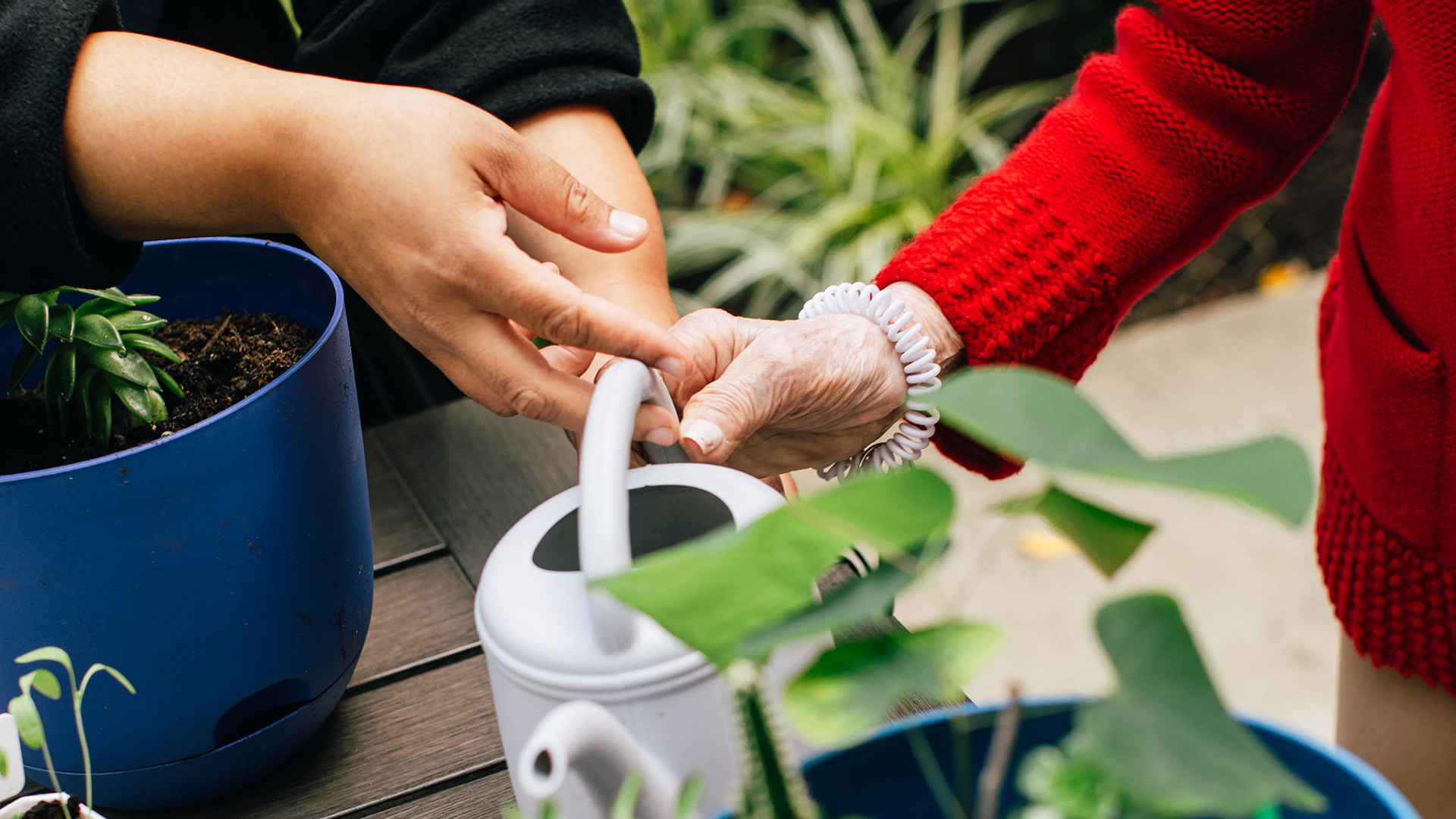A move to senior living often comes with an adjustment period – both for the older adult making the move, and their family. This transition can be especially hard for caregivers. If you’ve dedicated yourself to supporting your parent, researched the different types of senior living, found the right community and helped plan the move, you may still not be prepared for the emotions you and your parent experience after making the change.
“I’ve been on both sides of the coin,” says Lisa Ward, a Community Sales Director who started her career in the Atria community where her mother now resides. “My mother did not willingly move into a senior living community. Getting her to make the transition was difficult. My sister and I experienced a lot of guilt.”
Hear more from Ward and discover tips on how to help your parent if they are having difficulty adjusting to assisted living in this video.
4 ways to help your parent adjust after moving to an assisted living community
- Don’t yield too quickly
- Resist being a helicopter
- Make their home feel like home
- Expect good days and bad days
Our Guide to Help Your Parent Adjust to Assisted Living
Don’t yield too quickly
How long does it take to adjust to assisted living? The truth is, it varies. It may take as little as a week to feel comfortable. Many experts suggest it can take as long as three to six months – which could feel much longer if your parent is struggling to adjust to assisted living. This is normal.
If your parent is immediately ready to turn around and go home, encourage them to give it some time.
“Everybody has a different time frame,” Ward says. “Circle back to their pain point. What is it that they don’t like, other than it’s not home?”
You can also engage with the community’s staff to learn about appealing events. Encourage your parent to take a fitness class, go on an outing or find a group with similar interests.
“My mom loves gardening,” says Ward. “We connected her with some other master gardeners and the gardening club in the community. Once she put her hands in the dirt, she found her comfort zone.”
Resist being a helicopter
While frequent visits early on may seem like you’re being supportive, you could be holding your parent back. They may opt out of events and opportunities to interact with their new neighbors in anticipation of your visit.
Conversely, never visiting or calling may make your parent feel abandoned and confirm any apprehensions they may have had about the move in the first place.
“I think being there every day gives the signal that you think something is wrong, and you’re waiting for them to want to go back home. At the same time, you can’t just drop them off and drive away and go. Somewhere in between is ideal,” Ward advises.
Instead of frequent in-person visits, consider weekly phone calls and an occasional visit for lunch or dinner during the first 30 days. Make sure to check in with the community director as well to address any issues or strategies for adjustment.
After the first month, reach out to close family members and ask them to visit and call as well. Your parent may not be completely adjusted yet, but they may have positive things to talk about, like a new friendship or an event they really enjoyed.
By the second or third month, the community will feel familiar, and your parent may feel more comfortable. This is a great time to encourage visits and phone calls from extended relatives and friends. It may be a pleasant surprise for your parent. Encourage others to ask for a tour of your parent’s apartment and the community, or to stay for coffee or attend one of the daily events.
Make their home feel like home
One of the best ways to make their new home feel familiar is to decorate it with cherished items that represent your parent and what they care about. Their favorite piece of furniture or work of art, a special heirloom, family pictures and homemade crafts from grandchildren can all add warmth and personality to a senior apartment.
To put the finishing touches on their new space, take your parent shopping. While they may be reluctant to leave a long-time home, there may have been things they’d always wanted to update. A move offers an opportunity to replace items with something fresh – that still reflects their style.
You don’t have to stop at décor; consider other ways to make the community feel like home. If your parent has a beloved pet, look into the community’s pet policy to see if they can make the move as well. If your parent’s cat or dog has been left in your care, bring them with you from time to time when you visit. If there is a particular comfort food your parent loves, consider talking to the community’s chef about adding that item to the menu as one of their daily specials.
Expect good days and bad days
Every day will not be easy, nor will every day be a struggle – and that’s normal. Likely, you will both need time to process the change. It’s better for your parent to have an occasional bad day where they are safe, cared for and in great company rather than being home where their well-being may be at risk.
“Do you benefit from having a dedicated staff who can cook and clean for your parent, where you know that they’re safe and you can leave town and have peace of mind? Absolutely,” Ward says. “But it’s all about your parent. It’s about making sure they understand you’re doing this for them and not to them. The move is to ensure they’re healthy, happy, independent and thriving.”
If you are having trouble managing a conflict with your parent, as well as experiencing feelings of guilt and frustration, consider leaning on a friend, spouse or counselor for support. And rest assured that those challenging days won’t last forever. As time goes on, many witness their parent becoming happier and healthier at a senior living community – and the transition may help restore the parent-child relationship you once knew.
“When my mom moved in, she wouldn’t talk to us the first two weeks.” Ward says. “She wouldn’t even answer our phone calls. By the third week, she started participating and making friends. After about six weeks, we said, ‘Well, Mom, if you hate it here so much, why don’t you move back with us? We will just reverse everything.’ And she said, ‘Why would I do that? All my friends are here!’”
We’re here to help
Adjusting to assisted living takes time, and you can always reach out to us. Atria’s helpful and knowledgeable staff members are eager to help your parent feel at home in their community.
Download this useful guide to help ease the transition into assisted living for both you and your parent.






